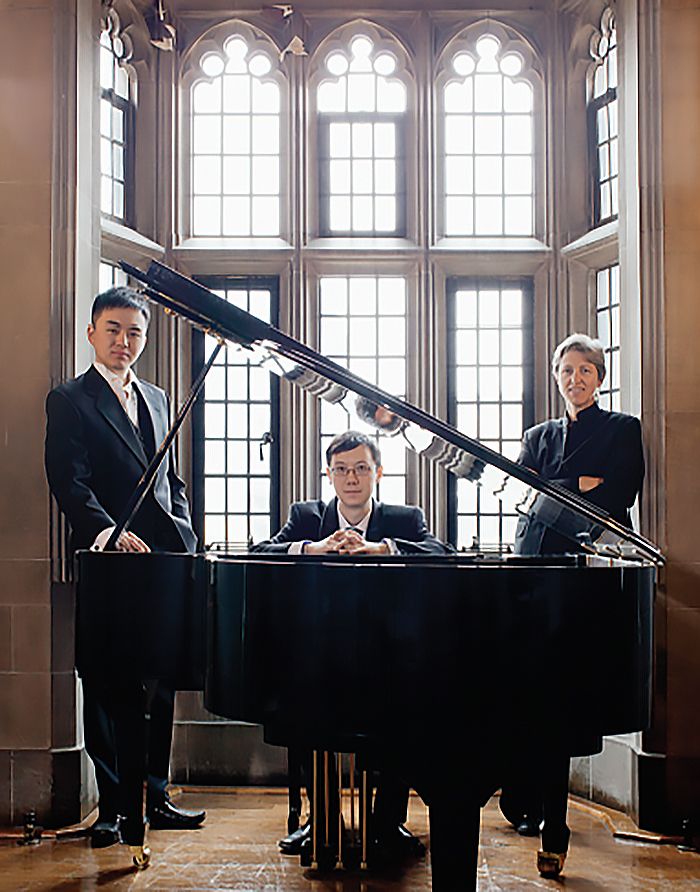Your university calls and wants you to compose a musical score for the launch of its fundraising campaign – a few weeks away. No pressure.
Well, at least not for Aaron Tsang and Kevin Lau.
Tsang, an alumnus of the Faculty of Music, and Lau, who recently defended his musical arts doctorate, were asked to compose music for the launch last fall of U of T’s $2-billion fundraising campaign. The two musicians say the few weeks they had to prepare was actually generous compared to what’s typical in the commercial sector. “They will tell you at 9 a.m. one day that they need it by 9 a.m. the next day.”
Tsang, who knew at the age of 15 he wanted to score Hollywood films, wrote the opening and closing fanfare for the launch ceremony. Lau, the composer-in-residence for the Mississauga Symphony Orchestra, scored the music for the campaign video.
Because the launch of the campaign marked an important milestone in the university’s history, Tsang and Lau felt their compositions should celebrate a storied past while looking toward a promising future. Tsang turned to the Olympics for inspiration, aiming to make listeners feel both solemn and proud. “I didn’t want to play a big blasting fanfare; I wanted to prompt retrospection and nostalgia,” he notes.
Tsang credits the conductor, Prof. Gillian MacKay of the Faculty of Music, for her work organizing the musicians and bringing his music to life. “None of this would have happened without her,” he says.
For his part, Lau drew inspiration from video interviews he saw of U of T grads and donors – which he says revealed a kinship with alumni he didn’t know he had. “As a composer you spend a lot of time by yourself; your creativity is fairly solitary. I didn’t really feel a tactile connection to U of T until working on this video.”
Listen to the music Aaron Tsang composed for the launch of the Boundless campaign at Convocation Hall:
Recent Posts
People Worry That AI Will Replace Workers. But It Could Make Some More Productive
These scholars say artificial intelligence could help reduce income inequality
A Sentinel for Global Health
AI is promising a better – and faster – way to monitor the world for emerging medical threats
The Age of Deception
AI is generating a disinformation arms race. The window to stop it may be closing




